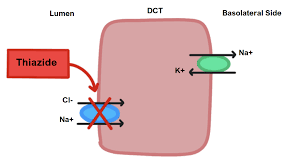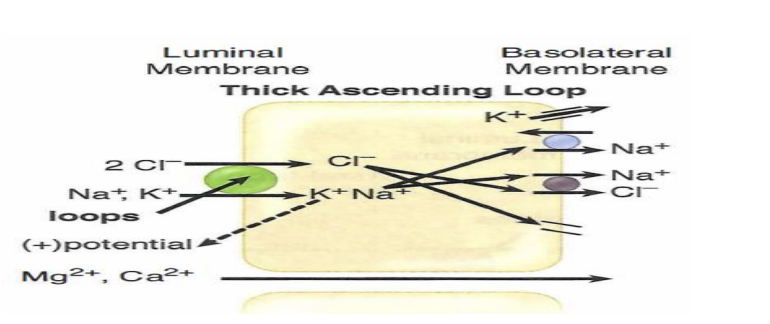It's Topic Tuesday
- siths375
- Apr 1, 2025
- 2 min read
Welcome back family! Hope you are excited for another Topic Tuesday post! This theme's month will be common cardiovascular medications. Today we are following up Samantha's discussion of ACE-inhibitors from yesterday by discussing another very important drug class: Diuretics.
Also known as “water pills”, diuretics help your blood pressure by getting rid of excess salt/water in your body by making you urinate more frequently.
Remember that as blood flows through the kidneys, it usually contain salts, water, and wastes. The kidneys work as our primary filter and works by deciding whether or not to reabsorb some things before they are excreted in the urine. This is accomplished through the use of several channels allowing us to reabsorb things such as sodium, glucose, proteins, and water.
Diuretics have their primary effect by blocking different channels in your kidney that reabsorb salts and water. By blocking the “reabsorber” channels, these substances will remain in your urine instead of returning to your blood, and will go on to be removed from your body when you use the bathroom.
There are several types of diuretic, each with a unique function, effect, and potential side effects. - https://my.clevelandclinic.org/health/treatments/21826-diuretics#:~:text=What%20is%20a%20diuretic%3F,the%20same%20time%20each%20day
Thiazide diuretics (ie. hydrochlorothiazide, chlorthalidone)
Block sodium/chloride co-transporter causing increased salt and water to stay in the urine.
Main use is in patients with hypertension as they allow a moderate reduction in body volume.
Also can be helpful in patients with recurrent calcium kidney stones because they increase the reabsorption of calcium from the urine back into the body -> Less calcium in urine means a lower risk of them hardening into kidney stones.
Loop diuretics (ie. furesomide (lasix), bumetanide)
Block a large sodium/potassium/chloride channel causing MASSIVE loss of salt and water from urine.
More powerful than thiazide diuretics and can cause a very significant reduction in volume from the body.
Primarily used to treat volume overload in patients presenting with severe heart failure.
Can also be used after major cardiac surgery and in severe hypertension.
Potassium-sparing diuretics (triamterene, amiloride)
These are unique in that they reduce salt and water in the body but do not cause a drop in potassium like many other diuretics.
They work by interfering with potassium channels in the later part of the kidney and antagonizing the effects of aldosterone (which causes increased potassium removal form the body.
Used in high blood pressure and heart failure.
And that wraps up this week’s session! We hope to see you next week for more drug education! Thank you for tuning in and until next time, remember to always Think Aorta.
Adham














Comments